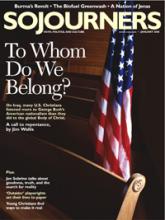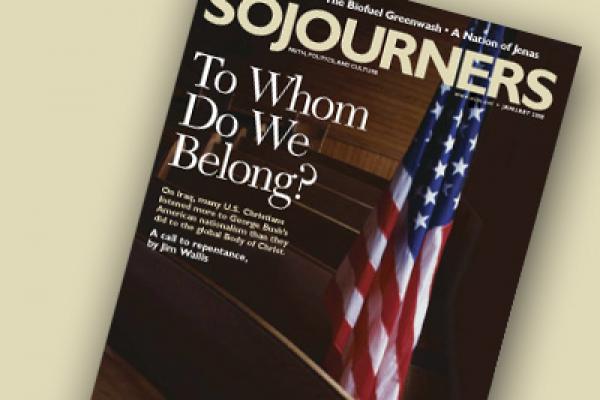To whom do we belong? This is really a question of worship, of baptism, and of fundamental Christian identity. It’s a critical question, because other identities—competing senses of belonging—are always tugging at Christians. Are we Christians first, as most believers would in principle agree that we should be, or are we first American, or middle-class, or white—or any other racial, economic, or national identity that would compete with our Christian identity?
When it comes to showing the world to whom we really belong, more and more Christians in America are starting to get it right. We are asking what God’s priorities are when it comes to the big moral issues of our time, and therefore what our priorities should be too, if we belong to God. More Christians are asking that question now and are
trying to change their posture in the world. They want to show, in their own personal and congregational lives, the kind of compassion that God has for people living in extreme poverty, afflicted with pandemic diseases, suffering the violations of their human rights, or being made victims of genocide. They want to show that they belong to their Creator by being concerned with God’s creation—our natural environment threatened with all sorts of dangers, from toxic waste to global warming. The fact that these concerns are growing among Christians around the world offers the real promise of re-establishing the identity of the Body of Christ as a global community of faith.
Read the Full Article

